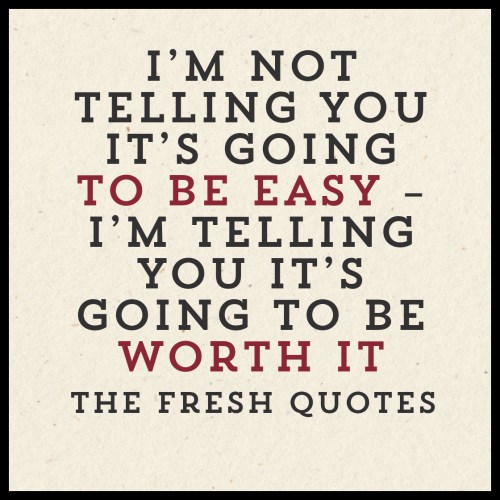
Encroachment In A Relationship
Encroachment. That’s a football term, right? One team is offside and the referee throws the flag for a five yard penalty. That may be true, but in the world of bullying and relationships, it also has dramatic meaning, with penalties and consequences as well. Here is the definition: to take another’s possessions or rights gradually or stealthily, or to advance beyond proper or former limits.
I have spoken about boundaries and limits before and how young children need to learn how to say, “Stop. Knock it off,” and slowly develop the courage to throw the flag and make the bully aware that they encroached on their space. As kids grow older, they enter into another world that involves boy/girl relationships and where problems with dating often occur. Our children need to learn at an early age that just because they like or are attracted to someone of the opposite/same sex, it doesn’t mean that they like or are attracted to them. A relationship between two parties grows out of a quality friendship first. For anyone to try and shoehorn themselves into a relationship that is unwanted is harassment, intimidation, and bullying. Teach your students now to throw the red flag if they believe someone is trying to encroach on their space.
Bench Notice
An adolescent boy or girl can have a tough time trying to figure themselves out. Doubts about their looks, body type, and academic and physical abilities can start to creep in once they enter middle school. Those who want to fit in but who feel awkward around those of the opposite sex can easily be taken advantage of by their peers. A young girl may share what boy she is interested in only to find the information spread all over the school. A boy may not share the his thoughts about the opposite sex but suffer inwardly because there is a girl that interests him. This can also be a problem in school for those in the LGBT community as they are plagued by thoughts of someone of the same sex, and fear the reaction of his/her classmates.
Adolescent students today need to be guided by adults who understand their situation and don’t see it as just a part of growing up. Recognize relationship issues in school and with your own children and do what you can to have a discussion that focuses more on their character and inward beauty rather than on their looks or abilities.
The Importance Of Significant Others
Bench Notice
Don’t fret if you lost you way and didn’t pay attention to the significant others in your life. The past is the past, right? Wrong. The past can and will dictate the future if we allow ourselves to be measured based on our failures rather than our successes. Let’s face it. We all have failed or fallen short from time to time. Just because we have failed does not mean we are a failure. It just means we did the best with what we knew at the time. Parents can do this once they take a look at the lifestyle or the behavior of their grown children. If you are a parent, take heart: you did your best with the information you had in the process of raising your children. If you are a teacher and have had your share of problems and headaches and feel like the funds are low and the debts are high, don’t look back. Don’t drive while looking in the rear view mirror; you will hit a future tree. Gandhi once said, “Be the change we wish to see in the world.” What changes do you want? A kinder and gentler place for kids to come, have fun, and learn? Realize that you are the one that has the capacity to facilitate the change. Have you goofed up in the past? So what? The past is the past, so please don’t ever let it remind you of what you are now. Let the past remind you of what the future holds when you finally let go.
Protect Your Energy
Bench Notice


Respect: I’ll Give It When I Get It
If that’s the attitude that everyone has, suppose no one is giving it? How about if everyone was giving it? I like the latter much better. Everyone has a choice, but the decision to display the quality of respect can’t be predicated on whether or not we are receiving it. This is not easy, it’s hard I know. I would highly recommend that everyone pick up a copy of “The 7 Habits of Highly Effective People” by Stephen Covey. (See Below) The first habit is to Be Proactive. A decision to be respectful to everyone should be made well before we are confronted with disrespect. Those decisions are made way down deep in the chambers of our own soul. Help your students make the decision now to be respectful all the time to everyone. If we all give it; we all get it.
Click Here To Download A Free Copy of Covey’s Book
Bench Notice
Having a high regard for the rights and privileges of another person; that’s respect. It doesn’t say who the person is or the position that they have in life; it says another person. Too often those who are down trodden or who are on the lower end of the economic scale can be treated with a greater degree of disrespect than others. The homeless on the street have the same blood running through their veins as everyone else does. We don’t have to agree with someone’s lifestyle or even their attitude. Our job is to respect everyone as a human being that shares this world with us.
Teach Character
Character is truly far more important than achievement. Theodore Roosevelt once said “To educate a person in the mind but not in morals is to educate a menace to society.” Teaching character is something that we all attempt to do, but because of lock step lesson planning and curriculum time lines we never seem to have the freedom to correctly work on this important topic in our classrooms. Sometimes there is more caught then taught. So, make the time to discuss situations that involve lying, stealing, cheating, bullying, bad mouthing, etc. Search for character education programs and lesson plans and make the time so you can force it into your day or your week. Do your best, and remember your main focus should be teaching the qualities of respect, and responsibility.
Bench Notice
Character; what we do when no one is looking. In the teaching profession everyone is looking. And, with the use of social media people are really looking. We can’t legislate morals but we will be judged based upon the court of public opinion. We all know the difference between right and wrong. Don’t allow you impulses get in the way of your good name. Life is based upon gain and loss, whether someone is looking or not. If there is any immediate gain to be had from behavior that could be interpreted as inappropriate or even immoral ask yourself if the long term consequence is worth it. Whether we want to believe it or not; people are watching.





